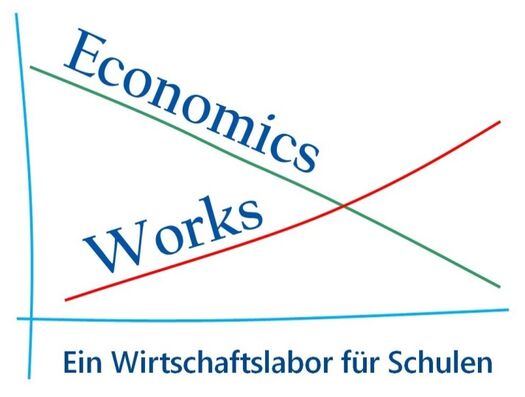Economics Works! - An economics lab for schools

The teaching of economics at school should strengthen students' everyday skills and economic knowledge and understanding. Achieving this goal is easier said than done. This is because school lessons often lack the time and resources to make economic events tangible in such a way that students can develop a deeper understanding of economic interrelationships. This is where the project Economics Works! - An economics laboratory for schools.
The basic concept for the economics lab was developed as part of the first funding phase for the project. It covers topics from grades 8-12 according to the core curriculum for politics and economics in Lower Saxony. The core of the economics laboratory consists of economic experiments on the individual topics, such as the functioning of markets, economic behavior models, cooperation and problems of public goods, or the possibilities and limits of government intervention in markets. Similar to science classes, the experiments allow students to gain insights into cause-and-effect relationships. Unlike in the natural sciences, however, the students are not only in the role of observers, but "in the thick of things" because they participate in the experiments themselves. In this way, economic relationships can be experienced directly through their own actions in the experiment.
In the first phase of the project, not only were the experiments developed and programmed as the core of the economics lab, but extensive teaching and learning materials were also created. The concept was also tested in three pilot projects at high schools in Osnabrück in the 2019/2020 school year. At Ratsgymnasium Osnabrück, the project took place in pure AG form, while at Gymnasium Carolinum and Gymnasium in der Wüste, the project was integrated into the seminar subject "Economics." All courses were planned and implemented by project staff.
After the successful first phase, the project is now in its second funding phase, in which further partner schools are being recruited. The curriculum is also being revised, and new variants are being added to the experiments. In the future, a tandem model will be used at the partner schools: The teachers at the school will be assisted by students who will be trained at the university and will support them both in carrying out the experiments in class and in processing the experiment results. Depending on the needs of the partner schools, the economics laboratory can be used in a concentrated way in a working group or in a seminar subject, or it can be used in conjunction with lessons in the subject of political economy. For the teachers at the schools, there is an advanced training program offered by the Center for Teacher Education at the University of Osnabrück. Further training should take place regularly once or twice a year.